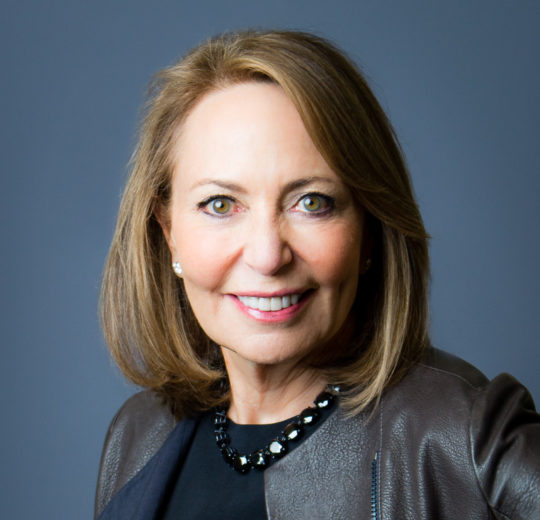Pamela Cantor, M.D.
Founder and Senior Science Advisor

Pamela Cantor, M.D. practiced child psychiatry for nearly two decades specializing in trauma. She founded Turnaround for Children after co-authoring a study on the impact of the 9/11 terrorist attacks on New York City schoolchildren. In high-poverty schools, she saw students traumatized by the circumstances in their lives, teachers struggling to meet the intense needs of their students and principals unable to build an environment that is physically and emotionally safe or supportive. Specifically, she recognized that the scientific research on stress and the developing brain that she had learned in medical school should be translated into practices to help children and schools challenged by with the effects of unrelenting adversity. Dr. Cantor started Turnaround to help schools understand the impact of adversity on learning and to put children on a healthier developmental trajectory so they can live the lives they choose.
After leading Turnaround for 16 years as President and CEO, in 2018, Dr. Cantor transitioned to a new role as Founder and Senior Science Advisor. She now focuses on the scientific underpinnings of Turnaround’s work, on targeted thought leadership opportunities and key development initiatives. Much of her efforts are grounded in a series of papers Dr. Cantor researched and co-authored.
In 2016, Turnaround published “Building Blocks for Learning”, a framework for comprehensive student development. The paper explores the roots of higher-order skills and mindsets, such as agency, perseverance and academic tenacity that all children need to flourish and suggests a path to acquire them.
In 2017, Dr. Cantor co-authored “Building the Bridge Between Science and Practice: Essential Characteristics of a Translational Framework” in the journal Mind, Brain and Education. And in 2018, Applied Developmental Science simultaneously published two papers co-authored by Dr. Cantor, “Malleability, Plasticity, and Individuality: How Children Learn and Develop in Context” and “Drivers of Human Development: How Relationships and Context Shape Learning and Development.” Together, the papers synthesize research from multiple disciplines on what is understood and what can be done to help all children develop in healthy ways, no matter the adversity they might experience as they grow up.
Dr. Cantor has been invited to share her insights on the science of learning and development at a variety of thought leadership events, including the Harvard Graduate School of Education’s By All Means Convening, ASU + GSV Summit, National Summit on Education Reform, Aspen Ideas Festival, NewSchools Summit, SXSWedu, and NBC News Education Nation. Her work has been highlighted in The New York Times, The Atlantic, The Washington Post and on NOVA and National Public Radio.
Dr. Cantor received an M.D. from Cornell University Medical College and a B.A. from Sarah Lawrence College. She is a Visiting Scholar in Education at Harvard University, a member of the Council of Distinguished Scientists for the National Commission on Social, Emotional & Academic Development, and a leader of the Science of Learning and Development Initiative. An Ashoka Fellow, Dr. Cantor was awarded the 2014 Purpose Prize for Intergenerational Impact.
What books have influenced you most?
The Lives of a Cell by Lewis Thomas, The Boy Who was Raised as a Dog by Bruce Perry, M.D., Ph.D. and Maia Szalavitz and The Drama of the Gifted Child by Alice Miller. All of these books exist in two dimensions: they look at life through a microscopic lens, at what makes us human, but also provide a vision for how understanding life in this very microscopic way is a window into all of life.
What motivates you?
Unfairness to children. Since as far back as I can remember, the idea that all children could not count on fairness in the people that cared for them, could not count on belief in their ability to become their greatest selves, caused an ache that was physical. I couldn’t stand it and had to do something about it.
Join Our Team
Put your skills and ideas to work in the schools that need it most. Join Turnaround for Children to help fulfill the promise of public education for all students.
